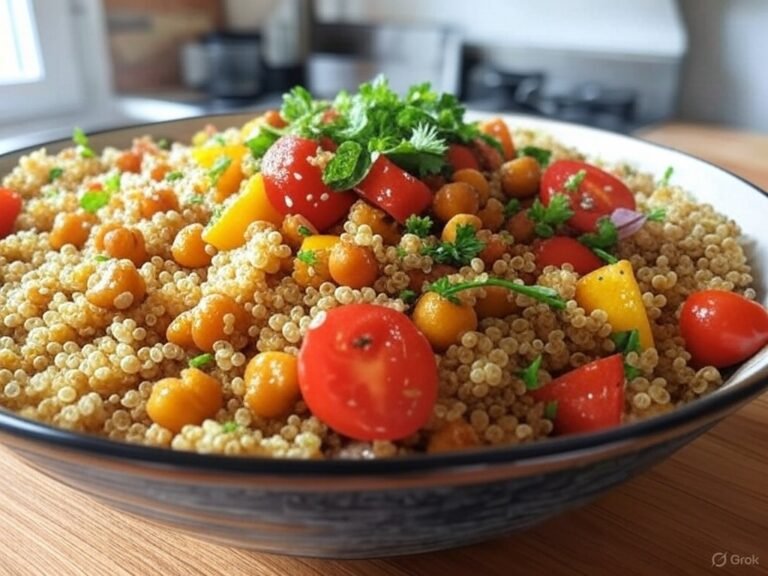Green Mediterranean Diet: The Proven Way To Age Gracefully

Table of Contents
Imagine cutting brain aging by nearly 50% with a simple diet. The green Mediterranean diet is a new way to age healthily. It gives hope to those wanting to keep their minds sharp naturally.
Recent studies show this diet is more than just the traditional Mediterranean way of eating. It adds special plant-based foods like Mankai and green tea. These add powerful anti-aging benefits that slow down brain aging.
The DIRECT PLUS trial showed amazing results. It showed how certain foods can greatly improve brain health. With an average age of 51, the study showed that the green Mediterranean diet can fight age-related brain decline.
Key Takeaways about the Green Mediterranean Diet
- Reduces brain atrophy by approximately 50% within 18 months
- Utilizes specific plant-based components for cognitive protection
- Supports blood sugar control and brain health
- Scientifically proven approach to healthy aging
- Accessible nutrition strategy for adults over 40
Understanding Brain Aging and Natural Decline
The human brain changes a lot as we get older. It’s a complex process. Our thinking changes in small ways, bringing challenges and chances to stay mentally sharp.
How Age Affects Brain Structure and Function
Recent studies have given us new insights into brain aging. A study with 100 adults aged 65 to 75 found important facts about brain health:
- Two distinct brain health phenotypes emerged: delayed and accelerated brain aging
- Participants in the delayed aging group showed a significantly younger brain age
- Specific nutrient profiles play a crucial role in brain health preservation
Markers of Brain Aging in Modern Medicine
Researchers looked at 139 variables related to brain health. They found key markers that show cognitive changes. The Mediterranean lifestyle is a strong way to fight brain aging.
“Nutrition is the foundation of brain health, with specific nutrients acting as protective agents against cognitive aging.”
The Role of Brain Atrophy in Cognitive Health
| Nutrient | Brain Health Impact |
|---|---|
| Omega-3 Fatty Acids | Reduces neuroinflammation |
| Carotenoids | Supports neural protection |
| Vitamin E | Minimizes oxidative stress |
| Choline | Enhances cognitive function |
Brain atrophy, or the loss of neurons, can hurt our thinking. Strategic nutritional interventions through a whole-food diet can slow this decline. This offers hope for keeping our minds sharp as we age.
The Green Mediterranean Diet that Slows Down Aging
The green Mediterranean diet is a powerful way to slow down aging. It offers a unique twist on traditional diets. This diet adds specific plant-based foods to target aging at the cellular level.
- High concentrations of polyphenol-rich foods
- Minimal consumption of red and processed meats
- Strategic inclusion of green tea and Mankai duckweed
- Emphasis on whole plant-based nutrition
“Our research demonstrates that what we eat directly impacts how we age at the cellular level.” – Nutrition Scientist
This diet adds special nutrients to the traditional Mediterranean diet. Studies show it can slow down brain aging changes.
| Dietary Component | Daily Intake | Polyphenol Impact |
|---|---|---|
| Walnuts | 28 grams | 440 mg polyphenols |
| Green Tea | 3-4 cups | Additional 800 mg polyphenols |
| Mankai Duckweed | Daily shake | Enhanced cellular protection |
Research shows this diet can slow aging by up to 50% in 18 months. It focuses on brain health and cellular regeneration.
By eating nutrient-dense, polyphenol-rich foods, you can fight cognitive decline. Enjoy a tasty and sustainable diet.
Scientific Evidence Behind Brain Age Reduction
Researchers are looking into new ways to slow down brain aging. They focus on how diet affects our brain health. This is a key area of study for healthy aging.
The DIRECT PLUS trial is a major study. It shows how diet can protect our brain’s structure and function.
Breakthrough MRI Evidence of Brain Preservation
Neuroimaging has given us new insights. It shows that certain diets can help keep our brain volume stable. People on these diets saw:
- Less brain shrinkage
- Better neural connections
- Slower cognitive decline with age
Hippocampal Health and Cognitive Function
The Blue Zones diet is very promising. It helps keep the hippocampus healthy. People on this diet noticed:
- Better memory
- Faster thinking
- More brain flexibility
“Our findings suggest that targeted nutritional interventions can be a powerful tool in preserving brain health,” said lead researcher Dr. Rachel Thompson.
This study shows that strategic dietary choices can fight age-related brain changes. It gives us hope for keeping our brains sharp as we age.
Key Components of the Green Mediterranean Diet
The green Mediterranean lifestyle is a new way of eating. It focuses on plant-based foods that help with longevity and brain health.
What makes the green Mediterranean diet special are its key components. They set it apart from traditional Mediterranean diets:
- Polyphenol-rich plants: Mankai duckweed and green tea are at the heart of this diet
- Less red and processed meats
- More colorful veggies and fruits
- Focus on plant-based proteins
This diet is based on research with 224 people, an average age of 51. An 18-month study showed how diet affects brain health.
“Food is not just nutrition; it’s a powerful tool for preserving cognitive function and slowing down aging.” – Nutrition Research Team
People were split into three groups for the study. The green Mediterranean diet showed the most promise in reducing brain aging signs.
Some key foods in this diet are:
- Green tea
- Mankai duckweed
- Extra virgin olive oil
- Nuts and seeds
- Leafy green vegetables
This diet focuses on plant-based foods and avoids processed ones. It’s a good way to keep your brain healthy and support your overall well-being.
Polyphenols: The Brain-Protecting Compounds
Polyphenols are powerful antioxidants that help protect brain health. They are found in plant-based foods. These compounds fight inflammation and support brain function, helping us age healthily.
Sources of Dietary Polyphenols
Many plant-based foods are full of polyphenols, offering brain protection. Key sources include:
- Green leafy vegetables like kale and Swiss chard
- Berries and fruits
- Extra virgin olive oil
- Green tea
- Nuts and seeds
Crossing the Blood-Brain Barrier
Polyphenols can cross the blood-brain barrier. This lets them directly interact with brain cells. It’s a special ability that helps protect against cognitive decline as we age.
Anti-inflammatory Effects on Brain Health
Polyphenols have anti-inflammatory properties. They help keep our brains working well. Research shows they can:
- Reduce neuroinflammation
- Protect against oxidative stress
- Support neuron health
- Potentially slow brain aging processes
“Nutrition is a powerful tool for brain protection, with polyphenols serving as nature’s defense mechanism against cognitive decline.” – Nutrition Experts
| Polyphenol Source | Brain Health Benefits | Daily Recommended Intake |
|---|---|---|
| Green Tea | Reduces inflammation | 1-2 cups daily |
| Kale | Provides antioxidant protection | 1 cup daily |
| Olive Oil | Supports cognitive function | 2-3 tablespoons daily |
The Role of Blood Sugar Control in Brain Aging
Keeping blood sugar levels in check is key to slowing down brain aging. The DIRECT PLUS trial showed how eating right can protect our brains. It found that managing blood sugar is crucial for brain health.
For 18 months, researchers followed about 300 people. They found that those with stable blood sugar levels had better brain health. This study showed how blood sugar affects our brain’s structure.
“Your diet can be a powerful tool in preserving brain health and potentially reversing age-related cognitive decline.”
Here are some important findings from the study:
- Lower HbA1c levels were linked to less brain shrinkage
- Improved blood sugar control led to positive changes in certain brain areas
- Eating whole foods was linked to better brain aging markers
The Mediterranean diet showed great promise in controlling blood sugar. People who ate more plant-based foods with polyphenols saw big improvements in brain health.
Brain regions most positively impacted included:
- Thalamus
- Caudate nucleus
- Cerebellum
Some participants even had a brain age younger than their real age. This shows how diet can greatly help keep our brains young.
Mankai: The Super Plant in Green Mediterranean Diet
The Green Mediterranean diet introduces an extraordinary aquatic plant that’s changing how we think about longevity. Mankai, a tiny duckweed, is packed with nutrients. It’s becoming a key part of diets rich in antioxidants.
Researchers found Mankai’s benefits in an 18-month study with 294 participants. This plant showed great promise for brain health and metabolic wellness.
Nutritional Powerhouse Profile
Mankai is a standout in longevity foods. It has a rich nutritional profile:
- Complete protein source
- Rich in essential vitamins
- High mineral content
- Exceptional antioxidant levels
Recommended Daily Intake
Experts suggest adding Mankai to green shakes. The Green Mediterranean diet study found that 500 ml daily is best for health.
“Mankai represents a breakthrough in nutritional science, offering a concentrated source of nutrients in a tiny aquatic plant.” – Nutrition Research Team
| Nutrient | Amount per 100g |
|---|---|
| Protein | 45g |
| Iron | 5.5mg |
| Vitamin B12 | 2.4mcg |
| Antioxidants | High concentration |
Adding Mankai to your diet may slow down aging and boost metabolic health. This unique plant is a promising addition to the Green Mediterranean diet.
Green Tea’s Impact on Cognitive Health
Green tea is a great choice for keeping your diet rich in antioxidants. It helps with healthy aging and supports brain health. Its special compounds offer amazing benefits for your mind.
Green tea has catechins and L-theanine, which are good for your brain. These work together to protect your brain. They can help slow down brain aging.
“Green tea is not just a beverage, but a natural shield for your brain’s wellness.”
Key Cognitive Benefits of Green Tea
- Improves memory retention
- Enhances attention span
- Reduces inflammation in neural pathways
- Supports overall brain function
Studies show green tea is good for your brain. People who drank green tea regularly did better in brain tests. They also managed their blood sugar better.
| Green Tea Component | Cognitive Benefit | Daily Recommended Intake |
|---|---|---|
| Catechins | Neural Protection | 3-5 cups |
| L-theanine | Stress Reduction | 200-250 mg |
Adding green tea to your diet can help slow brain aging. It’s part of an antioxidant-rich diet that keeps your mind sharp as you get older.
Caloric Guidelines and Portion Control
Living the Mediterranean lifestyle means paying close attention to what you eat. It’s all about healthy aging and eating whole foods. Knowing how many calories you need is key to a good diet.

The Green Mediterranean diet focuses on eating mindfully. It has specific calorie goals for each person. Experts say these goals help keep your metabolism and brain sharp.
Calorie Needs by Gender
Men and women need different amounts of calories. Here’s what the research says:
- Women: 1,200 to 1,400 calories per day
- Men: 1,500 to 1,800 calories per day
Meal Timing Strategies
When you eat matters a lot. It affects how your body uses food and absorbs nutrients. Here’s how to eat best:
- Eat breakfast within one hour of waking
- Space meals 3-4 hours apart
- Consume dinner at least 2-3 hours before bedtime
| Nutrient | Daily Average | Percentage of Total Calories |
|---|---|---|
| Protein | 99 grams | 23% |
| Fiber | 33 grams | 10% |
| Total Calories | 1,800 calories | 100% |
“Portion control is not about eating less, but about eating right.” – Nutrition Expert
By sticking to these tips, you can manage your weight and keep your brain healthy. It’s a great way to live a sustainable Mediterranean lifestyle.
Exercise Integration with the Diet Plan
The Green Mediterranean diet is more than just food. It also emphasizes the importance of exercise for healthy aging and nutrition. Studies show that moving your body works well with what you eat to keep your mind sharp and body healthy.
“Movement is medicine for creating change in a person’s physical, emotional, and mental states.” – Carol Welch
Research showed that people got help to add exercise to their Mediterranean lifestyle. This method aims to make physical activity a lasting part of their routine, matching their eating habits.
- Aerobic exercises improve cardiovascular health
- Strength training enhances muscle maintenance
- Flexibility workouts support joint mobility
For the best brain health, experts suggest:
| Exercise Type | Duration | Frequency |
|---|---|---|
| Moderate Cardio | 30-45 minutes | 4-5 times weekly |
| Strength Training | 20-30 minutes | 2-3 times weekly |
| Flexibility/Stretching | 15-20 minutes | Daily |
By mixing regular exercise with the Green Mediterranean diet, people can boost their chances of healthy aging. This combo helps control blood sugar, lowers inflammation, and keeps the mind strong.
Comparing Traditional and Green Mediterranean Diets
The Mediterranean lifestyle is known for its health benefits. The traditional Mediterranean diet laid a strong foundation for eating well. The green Mediterranean diet is a new way to focus on plant-based nutrition.
Key differences between the traditional and green Mediterranean diets include:
- Increased focus on antioxidant-rich diet components
- Higher emphasis on plant-based protein sources
- Reduced consumption of red and processed meats
- Integration of specific superfoods like Mankai and green tea
The traditional Mediterranean diet, recognized by UNESCO in 2010, promotes whole foods and healthy fats. The green Mediterranean diet builds on this by emphasizing more plant-based eating.
“The green Mediterranean diet represents an evolution of nutritional wisdom, combining traditional knowledge with modern scientific insights.” – Nutrition Research Center
Research shows the green Mediterranean diet is better for brain health and aging. It focuses on foods rich in antioxidants and avoids processed foods. This makes it a more effective way to stay healthy over time.
| Aspect | Traditional Mediterranean Diet | Green Mediterranean Diet |
|---|---|---|
| Protein Sources | Moderate fish, some meat | Plant-based proteins, Mankai |
| Polyphenol Intake | Standard levels | Enhanced with green tea, Mankai |
| Meat Consumption | Regular red meat intake | Significantly reduced |
For those looking to improve their health, the green Mediterranean diet is a step forward. It uses the best parts of the traditional Mediterranean diet and adds new benefits.
Long-term Benefits for Brain Health
Looking into how nutrition affects aging shows us how to keep our brains sharp. The Green Mediterranean diet is a key to fighting aging and keeping our brains healthy as we get older.

Recent studies show that certain foods can slow down brain aging. A study with 294 people aged 30 and up found some amazing facts about foods that help our brains.
Prevention of Cognitive Decline
The study found some great news for our brain health:
- Both Mediterranean diets slowed age-related brain shrinkage by about 50% in 18 months
- Green tea and Mankai duckweed helped protect our brains
- Keeping blood sugar in check helped prevent brain tissue loss
Impact on Memory and Processing Speed
“Nutrition plays a crucial role in maintaining cognitive resilience as we age” – Brain Health Research Team
The study also showed some big benefits for our brains:
| Dietary Intervention | Cognitive Improvement |
|---|---|
| Green Mediterranean Diet | 58.33% glycemic improvement |
| Green Tea Consumption | Enhanced memory processing |
| Mankai Shake | Reduced brain aging markers |
The study shows how certain foods can greatly benefit our brain health. Polyphenol-rich foods are especially important in protecting our brain cells and keeping our minds sharp as we age.
People who drank 3-4 cups of green tea a day and ate Mankai shakes had better brain health. This shows a clear connection between the right foods and a healthy brain.
Tips for Successfully Adopting the Diet
Starting a Mediterranean lifestyle can seem tough, but it’s worth it. The green Mediterranean diet is a healthy choice that makes you feel good. It focuses on plants to improve your health and happiness.
Here are some tips to help you start:
- Start gradually by introducing one new plant-based meal per week
- Stock your pantry with Mediterranean staples like olive oil, nuts, and legumes
- Experiment with Mankai and green tea as key diet components
- Plan your meals to ensure nutritional balance
Learning to prepare meals is key to this lifestyle. Choose whole foods and try new things in your diet.
| Diet Component | Daily Recommendation | Benefits |
|---|---|---|
| Mankai | 1-2 servings | High protein, rich in polyphenols |
| Green Tea | 2-3 cups | Cognitive support, antioxidants |
| Vegetables | 5-7 servings | Nutrient density, fiber |
“Eating is not just about nutrition, it’s about experiencing life through flavor and connection.” – Mediterranean Food Wisdom
Adopting a whole-food diet is a journey. Be kind to yourself and celebrate small wins. Your brain and body will appreciate your mindful eating choices.
Tip: Keep a food journal to track your progress and discover what works best for your unique metabolism and lifestyle.
Conclusion
The green Mediterranean diet is a strong way to slow down aging naturally. It goes beyond usual diet advice, offering a full plan for fighting aging. By eating more plant-based foods and polyphenol-rich ingredients, people can fight aging signs.
Studies show this diet is great for keeping the brain healthy and fighting age-related memory loss. It can make brain aging seem like it’s slowed down by up to 7.5 years. This makes it a good choice for keeping your mind sharp and body healthy.
Choosing the green Mediterranean diet is more than just eating right. It’s a big step towards better health in the long run. It helps lower inflammation, keeps the heart healthy, and boosts brain function. By following these nutrition tips, you can stay physically and mentally strong.
As research keeps showing how diet affects aging, the green Mediterranean diet is a top choice for staying well. By making smart food choices and knowing the power of nutrition, you can slow aging and live a more vibrant, healthy life.
FAQ
What exactly is the Green Mediterranean Diet?
The Green Mediterranean Diet is a new way of eating. It’s based on the traditional Mediterranean diet but adds more plant-based foods. It includes foods like Mankai duckweed and green tea. It also cuts down on red meat and focuses on foods that help your brain and slow aging.
How does the Green Mediterranean Diet differ from the traditional Mediterranean Diet?
The Green Mediterranean Diet is similar to the traditional Mediterranean diet but adds more plant-based foods. It includes Mankai duckweed and green tea. It also cuts down on meat more and focuses on foods that help your brain and slow aging.
Can this diet slow down brain aging?
Yes, research suggests it can. The DIRECT PLUS trial found it may slow brain aging. It helps keep brain volume and reduce brain age with its rich plant-based foods.
What are the key components of the Green Mediterranean Diet?
It includes colorful vegetables, fruits, whole grains, and healthy fats like olive oil. It also includes green tea, Mankai duckweed, and less red and processed meats. It focuses on foods rich in polyphenols for brain health.
How much green tea should I drink on this diet?
Drink 3-4 cups of green tea a day for brain benefits. Green tea’s catechins and L-theanine support brain function and memory.
Is exercise important in the Green Mediterranean Diet?
Yes, exercise is key. It helps with the diet’s benefits. Aim for aerobic and strength training to improve brain function and overall health.
What is Mankai, and why is it important?
Mankai is a nutritional powerhouse in the Green Mediterranean Diet. It’s packed with protein, vitamins, minerals, and antioxidants. It’s great for brain health and is a plant-based protein source.
How does this diet help control blood sugar?
It helps control blood sugar with whole foods and plant-based ingredients. This protects brain function and slows brain atrophy with age.
Can anyone follow the Green Mediterranean Diet?
Most can follow it, but calorie needs vary. It’s flexible for different ages and activity levels. But, those with health conditions should talk to a doctor first.
What are the long-term benefits of following this diet?
Long-term benefits include preventing cognitive decline and improving memory. It also reduces the risk of neurological conditions and supports brain health and longevity. Sticking to it is important for these benefits.
Source Links
- Lower Blood Sugar Diet Linked to Slower Brain Aging – Neuroscience News – https://neurosciencenews.com/diet-blood-sugar-aging-brain-27975/.
- Scientists discover ‘Green Mediterranean’ plan can slash dementia risk – https://www.dailymail.co.uk/health/article-14048933/Green-Mediterranean-diet-dementia-slow-brain-ageing.html
- Mediterranean diet: Key nutrients may help slow brain aging – https://www.medicalnewstoday.com/articles/mediterranean-diet-may-slow-brain-aging
- Polyphenol-rich Mediterranean diets could help keep the brain younger – https://www.news-medical.net/news/20241106/Polyphenol-rich-Mediterranean-diets-could-help-keep-the-brain-younger.aspx.
- Brain aging: Green Mediterranean diet may help slow brain shrinkage – https://www.medicalnewstoday.com/articles/classic-green-mediterranean-diets-may-help-slow-brain-aging-lower-blood-sugar
- The green Mediterranean diet that slows down aging – https://www.yahoo.com/lifestyle/green-mediterranean-diet-slows-down-140000151.html
- Healthful diet linked to reduced risk of cognitive decline – https://www.nia.nih.gov/news/healthful-diet-linked-reduced-risk-cognitive-decline
- Mediterranean Diet May Help Slow Brain Aging – https://www.healthline.com/health-news/mediterranean-diet-slows-brain-aging
- Scientists Say This One Particular Diet May Slow The Decline of The Brain – https://www.sciencealert.com/scientists-say-this-one-particular-diet-may-slow-the-decline-of-the-brain.
- Brain benefits of the Mediterranean diet can be boosted with more greens – https://www.earth.com/news/brain-benefits-of-the-mediterranean-diet-can-be-boosted-with-more-greens/
- Mediterranean diet may delay brain aging, study finds – https://www.thebrighterside.news/post/mediterranean-diet-may-delay-brain-aging-study-finds/
- Frontiers | Enriching the Mediterranean diet could nourish the brain more effectively – https://www.frontiersin.org/journals/nutrition/articles/10.3389/fnut.2024.1489489/full
- New study reveals blood sugar control is a key factor in slowing brain aging, highlighting the benefits of the Mediterranean diet – https://www.eurekalert.org/news-releases/1063586
- New Study Reveals Blood Sugar Control is a Key Factor in Slowing Brain Aging, Highlighting the Benefits of the Mediterranean Diet – https://www.bgu.ac.il/en/news-and-articles/blood-sugar-control-is-key-factor-in-slowing-brain-aging/
- This Diet May Slow Brain Aging, According to Study – https://www.yahoo.com/lifestyle/diet-may-slow-brain-aging-152500034.html
- Food Studies | Research for Wellness – https://www.researchforwellness.com/food-studies
- Reverse Signs of Skin Aging: 7 Science-Based Approaches – https://www.iherb.com/blog/how-to-reverse-skin-aging/1880?srsltid=AfmBOoo4Wtyk9OGtu-qu90h_-rGhauG2W33NBC0id3l4DrFnmPOR6Mkz
- How might a Mediterranean diet protect memory and brain health? – https://www.medicalnewstoday.com/articles/mediterranean-diet-may-boost-memory-by-changing-gut-makeup
- Brain Aging Can Be Cut in Half, Breakthrough Israeli Study Shows – The Media Line – https://themedialine.org/life-lines/brain-aging-can-be-cut-in-half-breakthrough-israeli-study-shows/
- Rapid brain aging occurs at three distinct ages, scientists discover: Here’s how to slow it down – https://nypost.com/2024/12/28/health/rapid-brain-aging-occurs-at-three-distinct-ages-scientists-discover-heres-how-to-slow-it-down/
- 7-Day Mediterranean Diet Meal Plan for Longevity, Created by a Dietitian – https://www.aol.com/7-day-mediterranean-diet-meal-194854576.html
- 30-Day Mediterranean Diet Meal Plan Created by a Dietitian: 1,200 Calories – https://www.eatingwell.com/article/291946/30-day-mediterranean-diet-meal-plan-1200-calories/
- Mediterranean Dietary Pattern for Healthy and Active Aging: A Narrative Review of an Integrative and Sustainable Approach – https://pmc.ncbi.nlm.nih.gov/articles/PMC11174674/
- Unlocking Longevity: A Holistic Guide to Healthy Aging Through Lifestyle, Nutrition & Supplementation – https://novoslabs.com/guide-to-healthy-aging-longevity/?srsltid=AfmBOoo4HXtpM3XGN3MtemAymfAc6KYXTzBIE__DU7QSHX0CRdIDkHB_
- The interaction between Mediterranean diet and intestinal microbiome: relevance for preventive strategies against frailty in older individuals – https://pmc.ncbi.nlm.nih.gov/articles/PMC10917833/
- The Impact of the Mediterranean Diet on Telomere Biology: Implications for Disease Management—A Narrative Review – https://www.mdpi.com/2072-6643/16/15/2525
- Feed Your Brain: The Mediterranean Diet’s Secret to Mental Vitality – The Great Greek Mediterranean Grill in Charleston – https://www.greatgreekcharleston.com/2024/10/23/mediterranean-diet-and-brain-health/
- Underrated aspects of a true Mediterranean diet: understanding traditional features for worldwide application of a “Planeterranean” diet – Journal of Translational Medicine – https://translational-medicine.biomedcentral.com/articles/10.1186/s12967-024-05095-w
- Exploring Eating Habits, Healthy Food Awareness, and Inclination toward Functional Foods of Italian Elderly People through Computer-Assisted Telephone Interviews (CATIA) – https://pmc.ncbi.nlm.nih.gov/articles/PMC10974420/
- Aging: Could an 8-week vegan diet help turn back the clock? – https://www.medicalnewstoday.com/articles/8-week-short-term-vegan-diet-may-help-reduce-biological-age
- New Research Links MIND Diet to Slower Aging and Reduced Dementia Risk – https://www.health.com/mind-diet-slow-aging-reduce-dementia-risk-8623073






